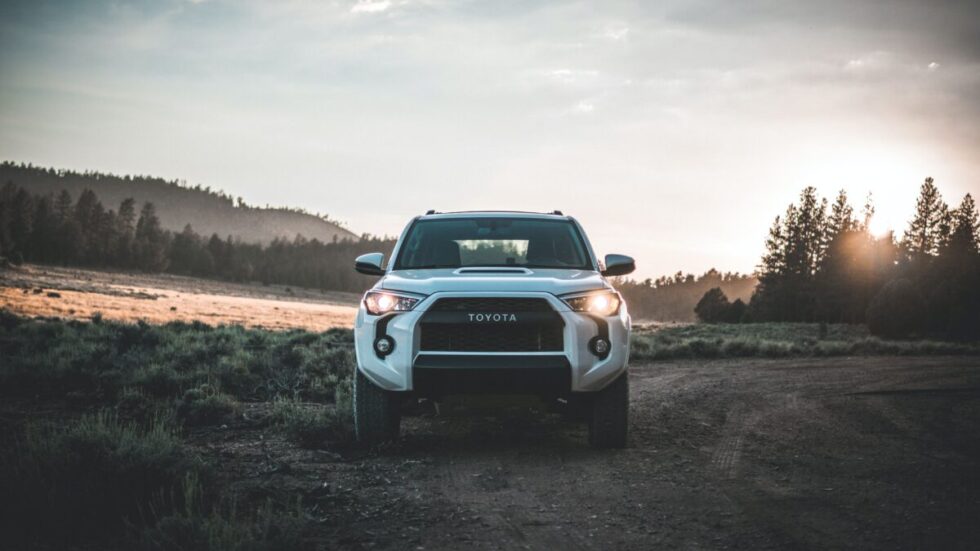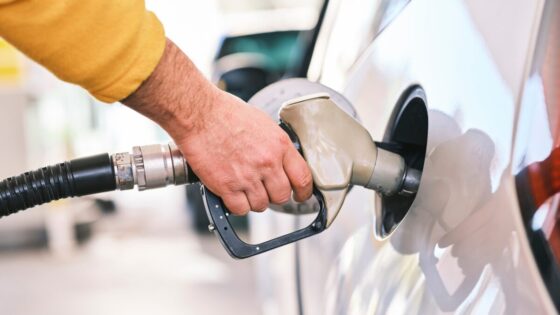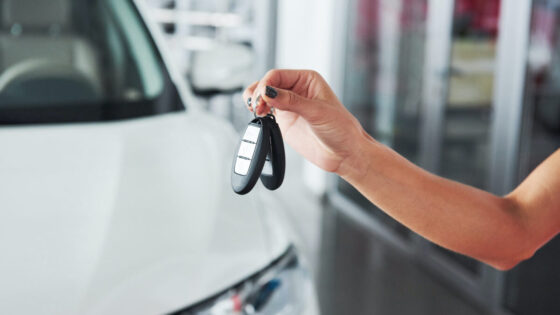The Best Time to Lease a Car: A Comprehensive Guide


Leasing a car can be a smart financial decision for those who want to drive a new car without the commitment of ownership. But when is the best time to lease a car? There are several factors to consider, including vehicle depreciation, interest rates, residual value, seasonal incentives, and the car market trends. In this comprehensive guide, we’ll explore these factors and provide timing strategies for car leasing.
Factors Affecting the Best Time to Lease a Car
- Vehicle Depreciation and Its Impact on Leasing
Vehicle depreciation is one of the most significant factors affecting the cost of a lease. Cars lose value over time, and the rate of depreciation varies by make and model. Leasing a car during its highest rate of depreciation can result in higher monthly payments and overall lease costs. Therefore, it’s best to lease a car when it has a lower rate of depreciation, such as a new model.
- How Interest Rates Affect Monthly Payments and Overall Lease Costs
Interest rates are another critical factor to consider when leasing a car. The interest rate, also known as the money factor, is a percentage that applies to the lease’s cost. The higher the interest rate, the higher the monthly payments and overall lease costs. To get the best deal, look for lease offers with low-interest rates or negotiate the money factor with the dealership.
- The Role of Residual Value in Determining Lease Terms
Residual value refers to the car’s estimated value at the end of the lease term. The higher the residual value, the lower the lease payments. The residual value is determined by the make and model of the car, as well as the lease term and mileage allowance. It’s essential to consider residual value when choosing a lease term and negotiating lease terms.
- Seasonal Incentives and End-of-Year Promotions That Can Save You Money
Car manufacturers and dealerships offer seasonal incentives and end-of-year promotions to boost sales. These incentives can include cashback offers, low-interest rates, or reduced lease payments. The best time to take advantage of these promotions is typically during the last quarter of the year when dealerships are looking to clear out their inventory and make room for the new models.Many car dealerships and manufacturers use platforms like Twitter to promote their latest deals and discounts. For example, the Twitter user @AudisEtc recently shared a promotion for a limited-time lease offer on a new Audi model. By following accounts like this, you can stay up to date on the latest leasing options and potentially find a great deal. However, it’s important to do your own research and compare offers from multiple sources to ensure you’re getting the best deal possible.
- Trends in the Car Market and How They Affect Leasing Options
The car market trends can affect leasing options, particularly the supply and demand for certain models. When there is high demand for a specific model, it can result in higher lease payments and lower incentives. Conversely, when there is low demand for a particular model, dealerships may offer lower lease payments and better incentives to move the inventory.
- Factors to Consider When Choosing a Lease Term
Choosing the right lease term is crucial to getting the best deal. The lease term refers to the length of the lease, typically ranging from 24 to 48 months. It’s essential to consider your driving habits and lifestyle when choosing a lease term. For example, if you only drive short distances, a lower mileage allowance may be sufficient, resulting in lower monthly payments.
Timing Strategies for Car Leasing

Timing is crucial when it comes to car leasing. By understanding the market trends and timing your lease correctly, you can save a significant amount of money on your monthly payments. Here are some timing strategies to consider:
- How to take advantage of end-of-year sales and model-year closeouts: Dealerships typically offer deep discounts at the end of the year to clear out their inventory before the new models arrive. By leasing a car during this time, you can take advantage of these discounts and get a great deal.
- Benefits of leasing during low-demand months: Leasing during the low-demand months, typically from January to March, can save you money on your monthly payments as dealerships may offer more incentives to boost sales during this time.
- Advantages of low-mileage leases: If you drive less than the average person, a low-mileage lease might be a better option for you. These leases typically have lower monthly payments and can save you money in the long run.
- The impact of your credit score on lease terms: Your credit score plays a significant role in your lease terms. A higher credit score can lead to lower interest rates and better lease terms overall. Make sure to check your credit score before leasing a car and take steps to improve it if necessary.
- How to negotiate lease terms that work for you: Don’t be afraid to negotiate your lease terms with the dealership. Research comparable lease offers and use that information to negotiate a better deal that works for you.
Pros and Cons of Leasing vs. Buying a Car
Before deciding whether to lease or buy a car, it’s important to understand the pros and cons of each option.
The benefits of leasing a car, including lower monthly payments and the ability to upgrade to a new car more frequently, can be attractive for some people. Leasing also means you don’t have to worry about selling the car later.
However, there are also advantages to buying a car outright, including ownership and the ability to sell the car later. You also don’t have to worry about mileage limits and wear and tear fees.
Factors to consider when deciding whether to lease or buy a car include your budget, driving habits, and future plans. If you want to drive a new car every few years and don’t want to worry about maintenance costs, leasing might be the better option for you. If you plan to keep the car for a long time and want to own it outright, buying might be the better option.
| Leasing a Car | Buying a Car |
| Lower monthly payments | Higher monthly payments |
| Ability to upgrade to a new car more frequently | Less frequent upgrades |
| No need to worry about selling the car later | Potential for a higher resale value |
| No need to worry about maintenance costs | Maintenance costs can add up over time |
| Mileage limits and wear and tear fees may apply | No mileage limits or wear and tear fees |
| No ownership rights | Full ownership rights |
| May require a down payment and security deposit | May require a larger upfront payment |
| Lease terms can be negotiated | Purchase price is generally non-negotiable |
When deciding whether to lease or buy a car, it’s important to weigh these factors against your budget, driving habits, and future plans. If you want to drive a new car every few years and don’t want to worry about maintenance costs, leasing may be the better option for you. On the other hand, if you plan to keep the car for a long time and want full ownership rights, buying may be the better option.
Additionally, for more information on the pros and cons of leasing versus financing a car purchase, check out this article on Cars311.
Early Lease Termination and Lease Buyout Options
There are times when you might want to terminate your lease early, such as a change in financial circumstances or a desire to upgrade to a new car. Terminating your lease early can be costly, so it’s important to consider your options carefully.
If you do decide to terminate your lease early, there are ways to minimize the costs. You can try to transfer your lease to someone else, but you may have to pay a transfer fee. Another option is to negotiate with the dealership to see if they will waive the termination fees.
Lease buyout options allow you to purchase the car at the end of the lease term. This can be a good option if you’ve grown attached to the car and want to keep it. However, it’s important to weigh the pros and cons of a lease buyout and make sure it makes financial sense for you.
Recently, there has been a lot of discussion on Twitter about the best time to lease a car. Check out this informative tweet from TheArticleTrunk with some great tips and insights: link
Choosing the Right Time to Lease a Car
Leasing a car can be a great option for those who want to drive a new car every few years without the hassle of ownership. However, choosing the right time to lease can save you money and make the process more convenient. Here are some tips for finding the best time to lease a car:
- Tips for Researching and Comparing Lease Offers
Before you commit to a lease, it’s important to research and compare lease offers from different dealerships. Look for lease deals that offer low monthly payments, low down payments, and low interest rates. Use online lease calculators to compare offers and calculate your monthly payments based on factors such as the car’s price, your down payment, and the lease term.
- Considerations to Keep in Mind When Choosing Your Lease Terms
When choosing your lease terms, consider your budget, your lifestyle, and your driving habits. Do you need a car with a high mileage limit, or will a low-mileage lease suffice? How long do you want to lease the car for? Do you want the option to purchase the car at the end of the lease? Make sure you read the lease agreement carefully and understand all the terms and conditions before signing.
- How to Calculate Your Lease Payments
Calculating your lease payments can help you determine if a lease deal is right for you. To calculate your lease payments, you will need to know the car’s price, your down payment, the lease term, the interest rate, and the residual value (the estimated value of the car at the end of the lease). Online lease calculators can help you crunch the numbers and estimate your monthly payments.
FAQ
The answer depends on your individual circumstances and preferences. Leasing a car can offer lower monthly payments and the ability to drive a new car every few years, while buying a car outright gives you ownership and the ability to sell the car later.
The end of the year is typically a good time to lease a car, as dealerships often offer end-of-year promotions and model-year closeouts. Additionally, leasing during low-demand months can also result in better deals.
Yes, you can terminate your lease early, but there may be fees and penalties involved. If you need to terminate your lease early, it’s best to talk to your leasing company and try to negotiate a resolution that works for both parties.
Yes, you can buy out your lease at the end of the term, but there may be fees and charges involved. Make sure you understand the buyout process and costs before committing to a lease.
Your credit score can impact your ability to lease a car and the terms of your lease agreement. A higher credit score can lead to lower interest rates and better lease terms, while a lower credit score may result in higher interest rates and fees. It’s important to check your credit score and improve it if necessary before applying for a lease.
If you have bad credit, you may be wondering if leasing a car is still an option for you. The good news is that there are leasing options available for people with less-than-perfect credit. Some dealerships and leasing companies specialize in working with customers who have bad credit. However, it’s important to do your research and compare offers before signing a lease agreement. You can also check out resources like this article on Cars311.com for more information on leasing options for bad credit.


